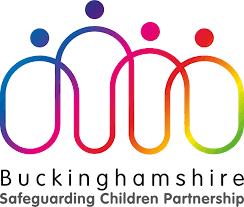1. Policy Statement Sapphire Gymnastics is committed to providing a safe, positive, respectful online environment for all children, young people, staff, volunteers, parents, and carers. We aim to use digital and online tools responsibly, protect everyone from harm, and respond swiftly to any online safety concerns.
2. Legal & Best Practice Framework This policy is informed by:
- CPSU guidance on
Online Safety & Social Media in Sport.
- Sport England’s guidance on digital communications and community guidelines.
- Relevant UK legislation (e.g. Data Protection Act / UK GDPR, laws about harassment, bullying, online communications).
3. Scope This policy covers:
- All uses of digital communication by Sapphire Gymnastics, including email, messaging apps (WhatsApp etc.), website, social media, video calls, live streaming, and online forums.
- All members: coaches, staff, volunteers, gymnasts / participants, parents / carers.
- All content posted by or on behalf of the club and by its members in official club-related online spaces.
4. Definitions
Online safety: Protection from risks such as cyberbullying, grooming, exposure to inappropriate content, privacy violations, harassment.
Digital communications: Any communication via digital means: social media, email, messaging apps, website posts, videos, images, live streams.
Cyberbullying: Bullying which takes place via digital devices, platforms or media: via messages, social media, group chats etc.
5. Acceptable & Unacceptable Use
Acceptable Use - Using online platforms to promote club activities, share news, celebrate achievements.
- Communication between coaches / staff and parents / participants in ways that are transparent, professional, and logged.
- Using secure platforms / accounts with proper permissions.
Unacceptable Use - Any form of bullying, harassment, hate speech through online channels.
- Sharing inappropriate, explicit, or harmful content.
- Private messaging between staff/volunteers and children outside agreed channels.
- Using personal social media accounts to contact children for club business (unless agreed and transparent).
- Sharing personal data/options without consent (photos, contact details etc.).
6. Disciplinary Process - Disciplinary matters can arise from complaints, safeguarding concerns, or breaches of codes of conduct.
- Where safeguarding or potential criminal offences are involved, these processes may run in parallel with referrals to statutory agencies (e.g. Police, Children’s Social Care, or LADO).
- Possible actions might include: verbal warning; written warning; temporary suspension (without prejudice); removal from sessions; termination of volunteering / coaching role.
- If misconduct is proven, consideration will be given to reporting to relevant bodies (e.g. NGB, insurance, DBS).
7. Whistleblowing
When to Blow the Whistle: Serious concerns about wrongdoing or risk, including safeguarding failings; health & safety; fraud; unethical or illegal behaviour.
How to Raise a Whistleblowing Concern: Initially report (in writing where possible) to Welfare Officer or Senior Management. If the concern is about the Welfare Officer or Senior Management, or if you believe it is not being properly handled, you may escalate to an external body (e.g. local authority, NGB, or NSPCC Helpline).
Protection for Whistleblowers: You will not suffer retaliation for raising concern in good faith (protected disclosure). Your identity will be kept confidential wherever possible. If identity needs to be disclosed (e.g. as part of investigation), this will be discussed with you first.
8. Safeguarding & Statutory Agency Involvement
- If at any point a complaint/disciplinary/whistleblowing concern involves potential harm to a child, abuse, neglect or criminal behaviour, the matter will be referred immediately to statutory authorities (Children’s Social Care, Police, LADO) in accordance with club’s Safeguarding Policy and CPSU procedures. (CPSU “Deal with a Concern” guidance
Child Protection in Sport Unit (CPSU) - Any disciplinary actions by the club will be paused or delayed if required by statutory agencies.
9. Reporting & Records
- All complaints, disciplinary cases, and whistleblowing reports will be recorded in writing.
- Records include: who made the complaint, what was alleged, who was involved, what evidence was reviewed, what decision was made, any outcomes or sanctions, any appeals.
- Records stored securely, access strictly limited (Welfare Officer / Senior Management).
10. Roles & Responsibilities
Welfare Officer: First point of contact; manages complaints/whistleblowing / disciplinary processes; liaises with statutory bodies when needed.
Senior Management: Oversee implementation; ensure fairness; decide appeals; ensure policy is reviewed and updated.
Investigating Officer: Neutral party handling fact-finding, ensuring evidence, interviews, and reporting.
All Staff / Volunteers: Follow process; report concerns; maintain confidentiality; cooperate with investigations.
11. Confidentiality & Fairness - All involved will be treated fairly; the person alleged to have done wrong has right to respond.
- Confidentiality will be maintained as far as possible.
- Allegations or complaints made in bad faith (malicious or deliberately false) may themselves be subject to disciplinary action.
12. Time Limits
- Complaints should normally be raised within 3 months of the event or discovery of the issue. Complaints made outside this timeframe may still be considered if there is a valid reason for the delay, particularly if they relate to safeguarding or welfare.
- Safeguarding concerns can be raised at any time and will always be taken seriously, regardless of when the incident took place.
- Appeals should be lodged within 7 working days of the written decision.
14. Review & Monitoring - The policy will be reviewed at least annually, or sooner if there is a change in legislation, guidance, or significant incident.
- Senior Management will monitor: number and type of complaints, disciplinary actions, whistleblowing reports; outcomes; lessons learned.
- Feedback will be sought from those involved (complainant, subject) on whether process was fair and timely.







